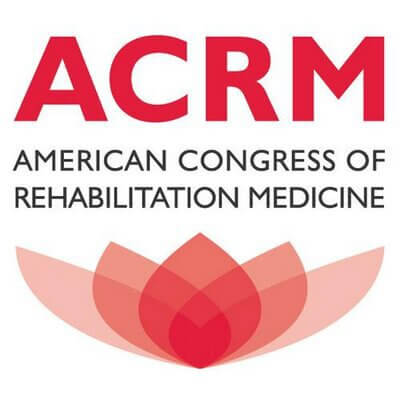Definition by the American Congress of Rehabilitation Medicine

A significant and now widely accepted definition of mild traumatic brain injury was established by the American Congress of Rehabilitation Medicine (ACRM) in 1993. ACRM defined Mild Traumatic Brain Injury (MTBI) as follows and added important “Comments” at the end to clarify the definition.
Definition
A patient with mild traumatic brain injury is a person who has had a traumatically induced physiological disruption of brain function as manifested by at least one of the following:
- Any period of loss of consciousness,
- Any loss of memory for events immediately before or after the accident,
- Any alteration in mental state at the time of the accident (e.g., feeling dazed, disoriented, or confused); and
- Focal neurological deficit(s) that may or not be transient; but where the severity of the injury does not exceed the following:
- Loss of consciousness of approximately 30 minutes or less:
- After 30 minutes, an initial Glasgow Coma Scale (GCS) OF 13-15; and
- Posttraumatic amnesia (PTA) not greater than 24 hours
Comments
This definition includes:
- The head being struck
- The head striking an object, and
- The brain undergoing an acceleration/deceleration (i.e., whiplash) without direct external contact to the head.
It excludes stroke anoxia, tumor, encephalitis, etc. Computed tomography, magnetic resonance imaging, electroencephalogram, or routine neurological evaluations may be normal. Due to lack of medical emergency, or the realities of certain medical systems, some patients may not have the above factors medically documented in the acute stage. In such cases, it is appropriate to consider symptomatology that, when linked to a traumatic head injury, can suggest the existence of a mild traumatic brain injury.”
Definition Significance
An experienced brain injury lawyer knows how important this definition can be in the trial of a MTBI case, and how to effectively use it. A good brain injury attorney knows, for example, that the language in the Comments section of the definition stating “computed tomography, magnetic resonance imaging, electroencephalogram, or routine neurological evaluations may be normal.” can be extremely helpful in convincing a jury of the presence of mild traumatic brain injury and that such injuries are indeed real. This acknowledgement by ACRM helps justify, legitimize, and explain the all too often situation where MTBI symptoms are present and debilitating, but brain imaging (CT and MRI) is negative for the injury.
Given the overall prestige and notoriety of the organization, and its diverse and esteemed membership, definitions of disease and injury established and published by ACRM, including this one, carry significant weight and authority within the medical community at large, governmental agencies worldwide, and with courts and the legal system generally.
The American Congress of Rehabilitation Medicine is an organization of rehabilitation professionals dedicated to serving people with disabling conditions of all types. The ACRM is a global community of researchers, and consumers of research, in the field of rehabilitation. ACRM is the only United States-based professional association representing all members of the interdisciplinary medical rehabilitation community, including: physicians, psychologists, rehabilitation nurses, occupational therapists, chiropractors, speech-language pathologists, recreation specialists, case managers, rehabilitation counselors, vocational counselors, and disability management specialists.


